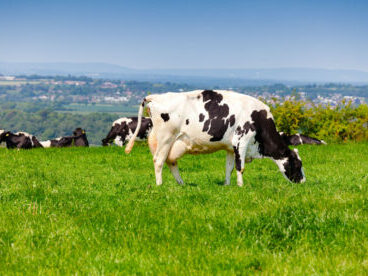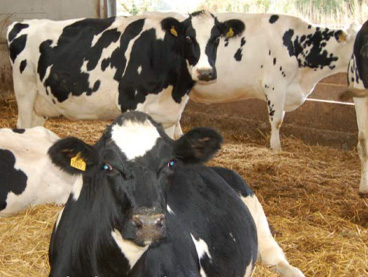Adding glycerene, a rumen- inert source of glycerol, to diets could help improve performance this summer as UFAC’s Mark Townsend explains.
Glycerene can unlock summer performance
Adding glycerene, a rumen- inert source of glycerol, to diets could help improve performance this summer as UFAC’s Mark Townsend explains.
“Energy nutrition is central to efficient milk production,” Mr Townsend comments. “For a cow to make the best use of the diet, turning feed into high quality milk she requires energy fed in the right forms. She then needs to digest the diet, absorb the nutrients in the intestine and then metabolise them in the liver in particular.
“It’s a complicated process and can go wrong in several ways. Acidosis is a great example as it reduces the efficiency with which the diet is digested in the rumen leading to reduced energy being available for use. Feeding glycerene can help improve the efficiency of energy metabolism in two specific ways.”
Glucose
Glucose is vital for milk production. The cow requires a good supply of glucogenic nutrients which can be converted into glucose by the liver. Glucose is required to for the production of milk lactose to maximise yield. Mr Townsend explains that glycerene is an efficient precursor of glucose and is directly utilised by the liver so helping to increase glucose production.
Fat
All nutrients passing out of the rumen have to be absorbed in the small intestine and fats and oils are no different. Fats and oils have to be converted into a triglyceride before they can be absorbed and transported and glycerol is required for this to happen. Being rumen-inert, glycerene is the most effective source of glycerol you can feed to make the full use of the fats in the diet.
“By improving glucose production and fat utilisation, glycerene helps cows get more energy from the diet and this reduces the energy they need to mobilise from body reserves, so helping maintain condition and reducing the risk of fatty livers.
“UFAC glycerene has been carefully formulated to make it rumen inert so it can be added to diets with no risk of acidosis and deliver glycerol to the cow more efficiently than unprotected liquid glycerol supplements.
“For many farmers the best option will be to choose a dietary supplement combining highly digestible oils and glycerene such as Omega Cream and Galaxy. Soft oils from vegetable and marine sources are more readily digested that harder oils such as C16 products based on palm oil. The combination of readily digested oils and glycerene can significantly increase the efficiency of fat digestion and utilisation. “With margins under pressure, ensuring cows use the diet really effectively will increase feed efficiency and margins while helping keep cows healthy. Glycerene can play a big part in achieving this,” Mr Townsend predicts.


 Back to News
Back to News 



